Keywords: Father Frank Brennan
-

RELIGION
- Frank Brennan
- 08 May 2017
1 Comment
Our Church is presently a strained, outdated social institution with an exclusively male hierarchy and clergy. But it is also the privileged locus for us to be called to the banquet of the Lord sharing theology and sacrament which have sustained the hearts and minds of similar pilgrims for two millennia. Thank God for Pope Francis who is showing us the way, helping us to find meaning in our changing and chaotic world, putting a fresh spring in the step of all those Catholics holding in tension the prophetic and the practical, the theological and the humanist, the tradition and the contemporary reality.
READ MORE
-

RELIGION
- Frank Brennan
- 17 April 2017
Following the passing of the Australian comedian and social commentator, John Clarke, his co-presenter Bryan Dawe talked about being on a tram in Melbourne with people nodding compassionately and knowingly at him. Bryan recalled that an old man had once commented to John, 'You know what you two do? It's a secret between you and the audience.' These are not the sorts of things we expect to hear when someone is still alive. Once they are dead, those who love and admire them recall all sorts of details about their life, finding new meaning and new depth even in the everyday things.
READ MORE
-

RELIGION
- Frank Brennan
- 29 March 2017
1 Comment
'We need to be more focused on grace, Christ and God's word, rather than just on law, the Church and papal utterances. But today, I will draw more on law, the Church and the Pope to point us towards those more fruitful domains: grace, Christ and God's word. Our future visioning needs to focus more on the gospel imperatives including the option for the poor and the dignity of all persons, including those who are non-believers.' Address to Catholic Health Australia's Catholic Governance Symposium, 27 March 2017
READ MORE
-
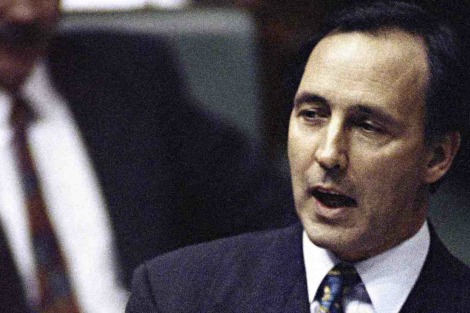
RELIGION
- Frank Brennan
- 14 March 2017
24 Comments
The debate over section 18C of the Racial Discrimination Act (18C) has gone on for far too long. It's time to bring it to a close. To date, I have been silent in the present debate, in part because I was a critic of such legal provisions when they were first proposed in 1992 and again in 1994. I have since been convinced that a provision like 18C could be designed to target racial vilification, leaving offensive insults beyond the reach of the law in a robust democracy committed to freedom of speech.
READ MORE 
-

RELIGION
- Frank Brennan
- 06 February 2017
17 Comments
Listening to the media and our church leaders in recent days, we know that there is plenty of darkness ahead for our Church in the weeks ahead with the Royal Commission's so-called 'Catholic wrap-up'. We're told that the statistics will be terrible and we expect that some of our church leaders will appear, looking stunned and helpless. This morning, I think we need to reflect on these stark realities in the light of the scriptures. And this can be done only by holding the victims clearly in focus.
READ MORE
-
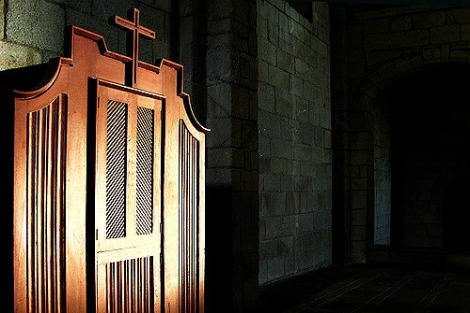
RELIGION
- Frank Brennan
- 05 December 2016
18 Comments
One distinctively Catholic practice is personal confession in which an individual confesses to God their sins and seeks forgiveness in the presence of and at the hands of a priest. Some groups and individuals are proposing to the royal commission that the seal of the confessional no longer be inviolable. I was quoted in The Australian saying, 'If a law is introduced to say that a priest should reveal a confession, I'm one of those priests who will disobey the law.' Being also a lawyer, let me explain.
READ MORE 
-

AUSTRALIA
- Frank Brennan
- 13 October 2016
2 Comments
With idealism and pragmatism, I invite you criminal lawyers in the next 30 years to imagine and enact a better criminal justice system which alleviates rather than exacerbates the devastating effects of colonisation and marginalisation on Indigenous Peoples, and most particularly their children. An intelligently designed criminal justice system must help secure the foothold of Indigenous children in both the Market and the Dreaming.
READ MORE
-

RELIGION
- Frank Brennan
- 23 September 2016
18 Comments
'No good will be served by a royal commission auspiced by the state telling a Church how it judges or complies with its theological doctrines and distinctive moral teachings. By all means, set universal standards of practice expected of all institutions dealing with children, but do not trespass on the holy ground of religious belief and practice.' Fr Frank Brennan SJ addresses the Freedom for Faith Conference in Melbourne, 23 September 2016.
READ MORE
-
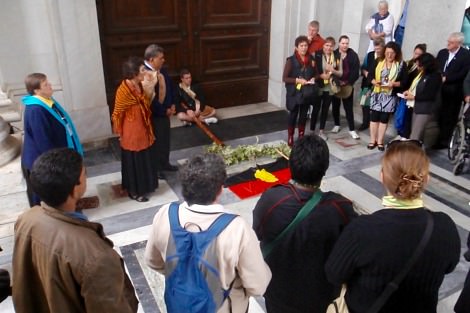
INTERNATIONAL
- Frank Brennan
- 27 July 2016
2 Comments
The violence at the pastoral frontier of the British colonies here in Australia was all pervasive. 228 years after it commenced, we are still experiencing the after-effects. When I started advocating Aboriginal rights here in Australia almost 40 years ago, the prevailing wisdom was that the missions and missionaries were all bad news. It will come as no surprise that I have always doubted that Aborigines were well rid of religion and the missionaries in all circumstances.
READ MORE
-
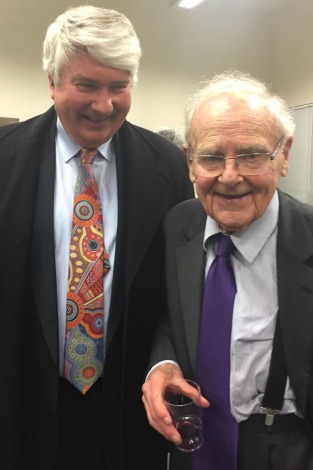
INTERNATIONAL
- Frank Brennan
- 26 July 2016
3 Comments
John traces the political ascent and descent of Sturzo whose first public office was as mayor of his own town. The chapter headings mark each step up and down the Everest of Italy's experiment with democracy and fascism: the emergence of political Catholicism in Italy; the dream takes shape; democracy without direction; democracy in decline; the search for a leader; the stick and the carrot; the voice of the watchman; and enter the night. Sturzo goes into exile; Mussolini takes over; and the Vatican is well pleased because the Roman Question is finally resolved in 1929 with the Lateran Treaties negotiated by Mussolini and Pope Pius XI, each of whom got what they were looking for.
READ MORE
-
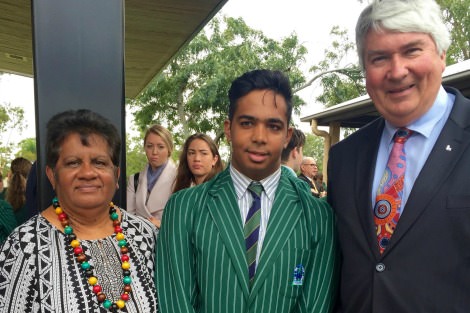
AUSTRALIA
- Frank Brennan
- 25 July 2016
7 Comments
Next year marks the 50th anniversary of the amendment to the Constitution which took out the adverse references to Aborigines. Following our recent election, we are assured at least six, and possibly seven, members of our national parliament who proudly claim an Aboriginal or Torres Strait Islander heritage. They are represented in all parties and none. How good it would be if our elected Aboriginal politicians could come together across party lines and propose an amendment to the Constitution which recognises them.
READ MORE 
-

RELIGION
- Frank Brennan
- 02 May 2016
2 Comments
READ MORE